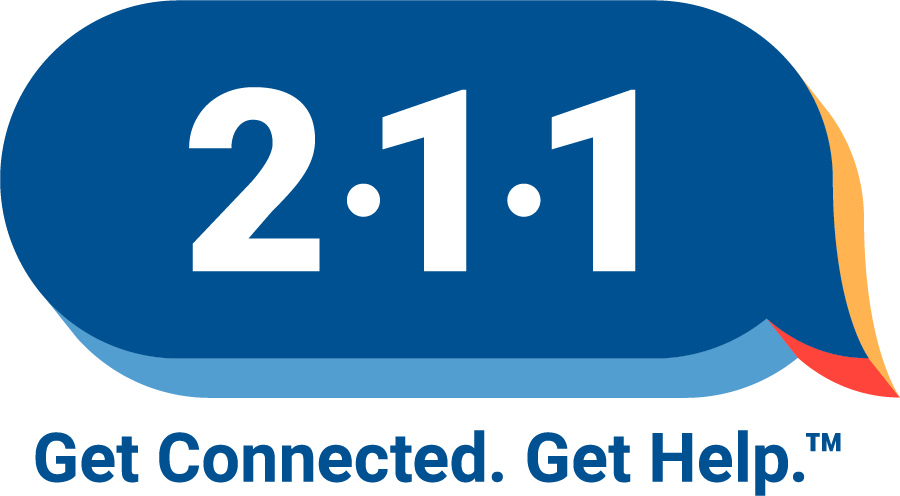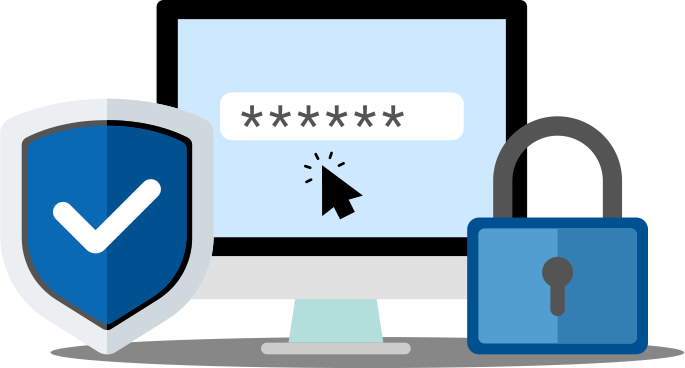National Hispanic and Latine Heritage Month

Read time: 9 minutes
United Ways of California is thrilled to kick off National Latine and Hispanic Heritage Month with a rousing Si Se Puede! Together, as a community, we can achieve equity!
Each year, the month-long celebration from September 15-October 15 celebrates the contributions, rich culture, and complex stories and identities of Latine and Hispanic people—people in the United States whose roots are from Spain, Mexico, Central America, South America, and nations of the Caribbean. This is an opportunity to honor the stories, the music, the food, and all that makes Latine and Hispanic people so unique. This month, we celebrate using ‘Latine’ to refer to all people of Latin origin without distinction of gender.
Latine and Hispanic people hold an integral role in U.S. history, dating back to the American Revolution. Their commitment to equity and innovation has shaped our nation with great pioneers like activist Dolores Huerta, astronaut Dr. Ellen Ochoa, WWII sergeant Macario Garcia, biologist George Meléndez Wright, and many others. Latine and Hispanic people are the largest racial or ethnic group in California, making up 39.4% of the state population in the 2020 census and are the largest racial or ethnic minority in the country, representing 19.1% of the total U.S. population.
The Need for Greater Representation
While Latine and Hispanic people make up a large portion of the U.S. population, there continues to be a lack of representation and access in several spaces. A study conducted by Johns Hopkins Institute for Education Policy and UnidosUS revealed Latine and Hispanic youth are largely left out of public school textbooks, and only 12% of Latino history topics were covered well.
The housing crisis in California has disproportionately impacted Hispanic and Latine communities, highlighting significant disparities in homeownership and living conditions. According to data from the UCLA Latino Policy and Politics Institute’s 2015-2019 American Community Survey, these inequalities reveal broader challenges faced by families. For example, “at a 43% homeownership rate, fewer Hispanic households own their home in California compared to 63% of white households and 59% of AAPI households. Almost one in five Latine and Hispanic households is overcrowded in California, more than double the rate for the state overall (8%), and Latine and Hispanic children are the most likely to live in an overcrowded household (40%) among the major racial groups. Hispanic children are 4 times more likely than white children to live in overcrowded households.”
This lack of representation in homeownership and access to adequate living conditions reflects systemic barriers, revealed in United Ways of California’s Real Cost Measure (RCM) study. These challenges continue to affect Latine communities, making it harder for them to advocate for equitable housing policies and opportunities.
More than ever, representation matters—it’s a core element of identity that cannot be ignored.
At United Ways of California, we take pride in uplifting and celebrating the diverse experiences, cultures, and perspectives of our Latine and Hispanic staff across California United Ways. This reflects our commitment to fostering greater representation. Here are a few of their voices:
“I was always too ‘Latina’ to be American, and too ‘American’ to be Nicaraguan (where my family is from), so I never felt like I truly fit in. But as I’ve grown older, I’ve grown to love how unique I am in all my circles. Now I’m usually the first Nicaraguan-American people meet and I love sharing my culture with new friends,” says Paola N. Hernandez, Director of Impact and Business Intelligence at United Ways of California.


Kassandra Flores, Director of 211 at United Way Santa Cruz County, adds, “My [personal and professional] journey has shown me that dedication and hard work y si te pones las pilas, or if you get your act together, can help you achieve your goals. I’m passionate about my work and the community I serve.”
Another member of the community, Tomás Carradero, Social Media and Content Specialist at United Way Bay Area, beautifully captures the spirit of this month: “During this month, I make sure to have marigolds present in my house, and I begin the process of building my ofrenda. It’s a great reminder of who I am and who has come before me. Oh, and I almost strictly listen to Latin artists, with my favorites being Linda Ronstadt, Becky G, Vicente Fernández, and Natalia Lafourcade.”

As the Latine and Hispanic population grows and shapes the future, it’s exciting to dedicate more time to learning from and listening to the inspiring personal stories within this community.
Addressing Community Needs
These meaningful conversations can provide insight into the unique challenges facing Latine and Hispanic Californians. Our Real Cost Measure study reports 1 in 2 Latine and Hispanic Californians struggle to afford basic needs like housing and healthcare. While the cost of living in California continues to rise, families find it much more difficult to solely survive from wages, tax credits, and savings—and we continue to see Latine and Hispanic households being impacted at disproportionately higher rates.
United Ways of California is committed to empowering communities by providing tools to build economic capital. Given the percentage of Latine and Hispanic Californians who are struggling to make ends meet, the programs provided by United Ways of California and our local United Ways across the state—including 211 call centers to connect to support resources, our benefit screener to quickly check eligibility for more than a dozen public benefits at once, financial education tools, free tax prep help, and more—are critical to support this community. These programs not only serve Latine and Hispanic Californians but also address the needs of other underserved communities facing similar economic challenges across the state.
Programs like Volunteer Income Tax Assistance (VITA) help people with low-to-moderate income save money by offering free tax preparation and assisting them in claiming tax credits and refunds they’re entitled to. To help families navigate their tax-filing process, MyFreeTaxes.org offers virtual and in-person support and educational resources in both Spanish and English.
While people with Individual Taxpayer Identification Numbers (ITINs) are diverse in many ways, including race and ethnicity, there are many Latine and Hispanic ITIN holders. United Ways of California, local United Ways, and our partners are committed to supporting people in applying for ITINs, filing taxes for free with ITINs, and getting ITIN holders tax credits they deserve. These collaborative efforts have made it possible for California tax credits to be extended to ITIN holders.
Latine and Hispanic families work tirelessly in California, playing a crucial role as a leading workforce in sectors such as agriculture and hospitality. According to the findings from the National Agricultural Workers Survey (NAWS) 2015-2019, 96% of all California farmworkers were Latine and Hispanic, and among U.S.-born workers, 65% were Hispanic. Additionally, their mean and median total family income the previous year ranged from $25,000 to $29,999. For farmworker families, the reality is often living paycheck to paycheck just to stay afloat.
In response to the overwhelming need, United Ways of California and its partners distributed over 60,000 $600 relief payments to farmworkers affected by the COVID-19 pandemic through the Farm and Food Worker Relief (FFWR) Program. This significant initiative by local United Ways not only acknowledges the urgent needs of farmworker families but also highlights the broader gap in support during these challenging times. For example, in a recent survey of our FFWR fund recipients, low-cost broadband internet service was identified as a key need; while United Ways of California provides tools for households to find low-cost internet, we know there are still significant access gaps, particularly with the lapse of the Affordable Connectivity Program. The FFWR Program represents an important first step toward better understanding and addressing these critical needs to improve community support.
Looking Ahead
There’s still significant work to be done, and much more to improve and advocate for. As we celebrate and uplift the remarkable contributions of Latine and Hispanic communities, let’s also commit to addressing systemic inequities and injustices. Many United Way organizations in California are actively working to make their staff and Boards more representative of the diverse communities they serve, including Latine and Hispanic Spanish-speaking populations. United Way organizations across California are committed to fostering community engagement and cultural enrichment through a variety of programs. One such initiative is led by United Way of Central Eastern California, which offers scholarships for children to participate in mariachi workshops in their region. This program not only nurtures musical talent but also promotes cultural pride and education. Together, we have the power to drive meaningful change and foster a deeper understanding and respect for the diverse and vibrant cultures that enrich our society.
10 Ways to Celebrate National Latine and Hispanic Heritage Month
To get your learning and celebration started, we’ve compiled a National Hispanic and Latine Heritage Month Resource Guide you are welcome to use. Here are a few other ways you can celebrate:
- Attend Cultural Events: Participate in festivals, parades, and local events that showcase Latine music, dance, food, and art.
- Support Latine-Owned Businesses: Shop at Latine-owned stores, restaurants, and businesses to support the community economically.
- Explore Latine Cuisine: Try cooking or dining at restaurants that offer traditional dishes from various Latin American countries.
- Learn About Latine History: Read books, watch documentaries, or attend lectures about the history, contributions, and struggles of Latine communities in the U.S. and beyond.
- Celebrate Latine Art and Literature: Visit art exhibits, read books, or watch films by Latine creators that highlight the richness of Latine culture and experiences.
- Support Latine Charities and Nonprofits: Donate to or volunteer with organizations that work to uplift Latine communities.
- Educate Yourself and Others: Use the month as an opportunity to learn more about the diversity within the Latine community, including the different cultures, languages, and traditions.
- Promote Latine Voices: Share and amplify Latine voices on social media, including authors, activists, and artists who contribute to the cultural and social landscape.
- Visit a Museum or Cultural Center: Explore exhibits or attend events at museums and cultural centers that focus on Latine heritage and history.
- Engage in Advocacy: Get involved in or support initiatives that promote the rights and representation of Latine communities in political, social, and economic spheres.



